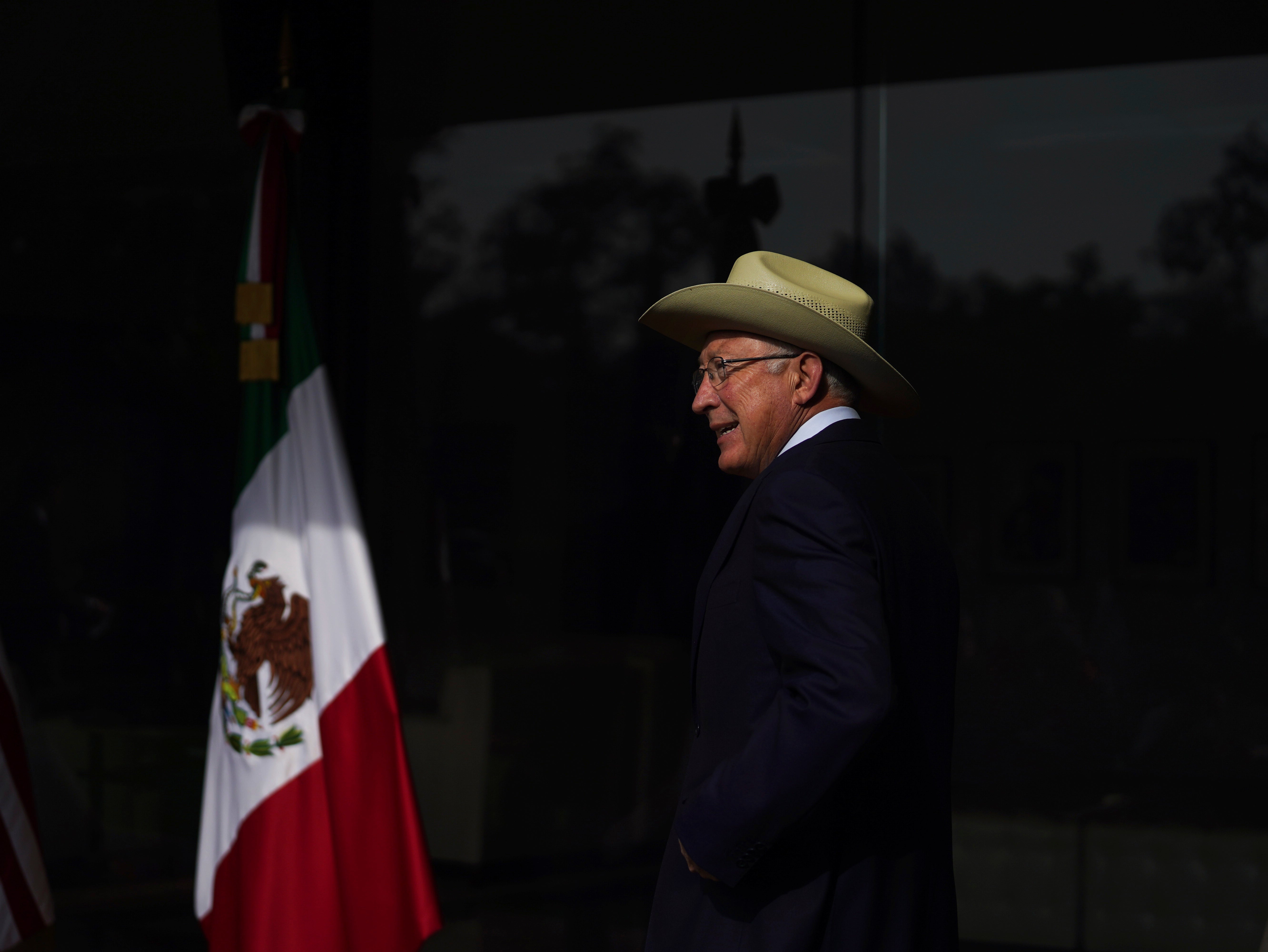US diplomat warns of great consequences for migrants at border who don't choose legal pathways
U.S. Ambassador to Mexico Ken Salazar has warned that migrants who do not opt for a legal pathway into the United States will face consequences

Your support helps us to tell the story
From reproductive rights to climate change to Big Tech, The Independent is on the ground when the story is developing. Whether it's investigating the financials of Elon Musk's pro-Trump PAC or producing our latest documentary, 'The A Word', which shines a light on the American women fighting for reproductive rights, we know how important it is to parse out the facts from the messaging.
At such a critical moment in US history, we need reporters on the ground. Your donation allows us to keep sending journalists to speak to both sides of the story.
The Independent is trusted by Americans across the entire political spectrum. And unlike many other quality news outlets, we choose not to lock Americans out of our reporting and analysis with paywalls. We believe quality journalism should be available to everyone, paid for by those who can afford it.
Your support makes all the difference.U.S. Ambassador to Mexico Ken Salazar warned Thursday that migrants who do not opt for a legal pathway into the U.S. will face great consequences, a message coming at a time when the Biden administration needs Mexico’s cooperation in easing the flow of migrants to their shared border.
Salazar told reporters that the number of migrants arriving at the U.S.-Mexico border has dropped since U.S. President Joe Biden implemented changes last week aimed at making it more difficult for those seeking asylum. But he did not specify by how much the number of migrant encounters had dropped.
“If they don’t arrive in a legal manner, there will be consequences,” he said. “They will be returned to their home countries and will not be allowed into the United States for five years.”
Biden’s executive order would limit asylum processing once encounters with migrants between ports of entry reach 2,500 per day. It went into effect immediately because the latest figures were far higher, at about 4,000 daily.
Civil rights groups have been quick to react to the policy changes. A coalition of immigrant advocacy groups on Wednesday sued the Biden administration saying the presidential order differs little from a similar move by the Trump administration that was blocked by the courts.
South of the border, Mexican authorities have been rounding up migrants, including those returned by the U.S., and taking them to the southern cities of Villahermosa and Tapachula in an effort to discourage them from migrating north.
The head of the U.N. refugee agency cautioned Thursday that some aspects of Biden’s order may violate refugee protections required by international law.
Immigration cooperation was also among the topics discussed Thursday when U.S. Vice President Kamala Harris called incoming Mexican President Claudia Sheinbaum to congratulate her on her victory, according to a statement from Harris' office.
“Our objective is clear,” said Salazar. “We want to deepen the relationship between the U.S. and Mexico as neighbors, economic partners, and as a family.”
Salazar declined to offer his opinion on controversial judicial reforms proposed by outgoing Mexican President Andrés Manuel López Obrador.
Earlier this week, Brian Nichols, U.S. assistant secretary for Western Hemisphere affairs, urged that there be transparency in Mexico’s judicial reforms, particularly concerning any impact they could have on U.S. investors and companies.
Salazar said that a strong judicial system was important, but it was up to Mexicans to decide on the changes.
___
Follow AP’s coverage of Latin America and the Caribbean at https://apnews.com/hub/latin-america